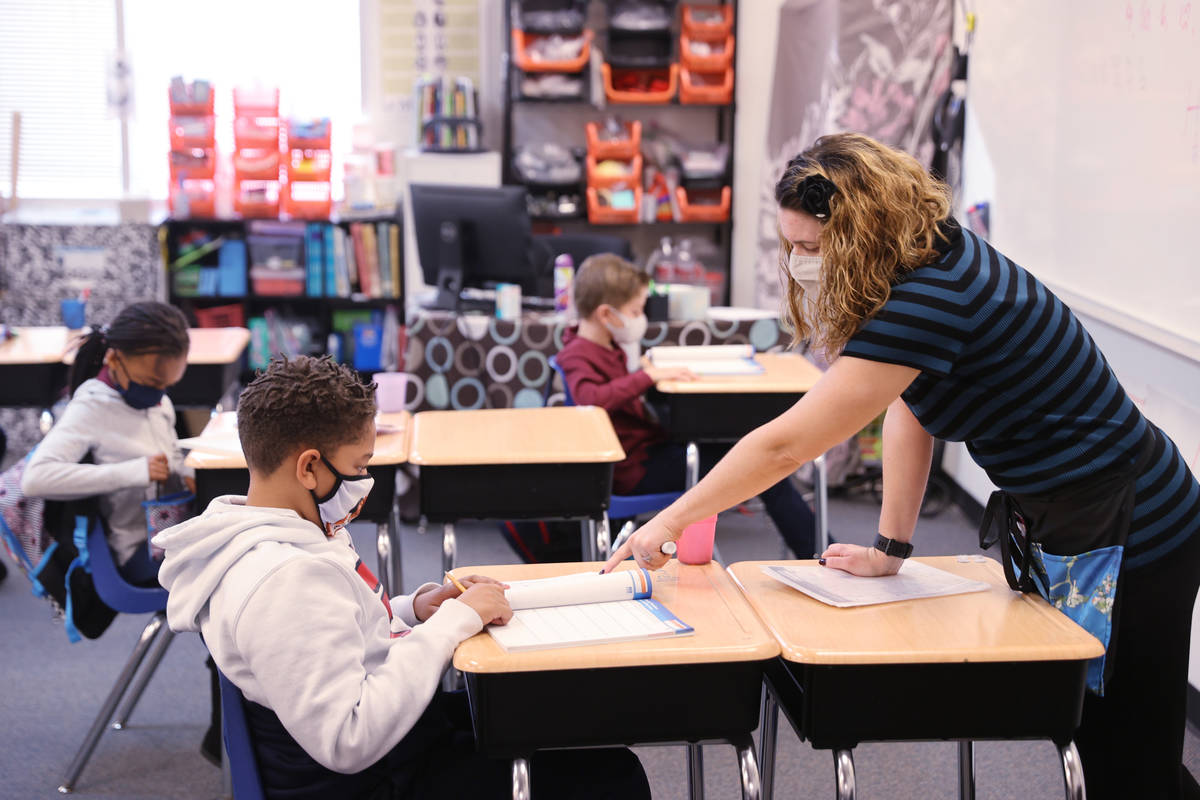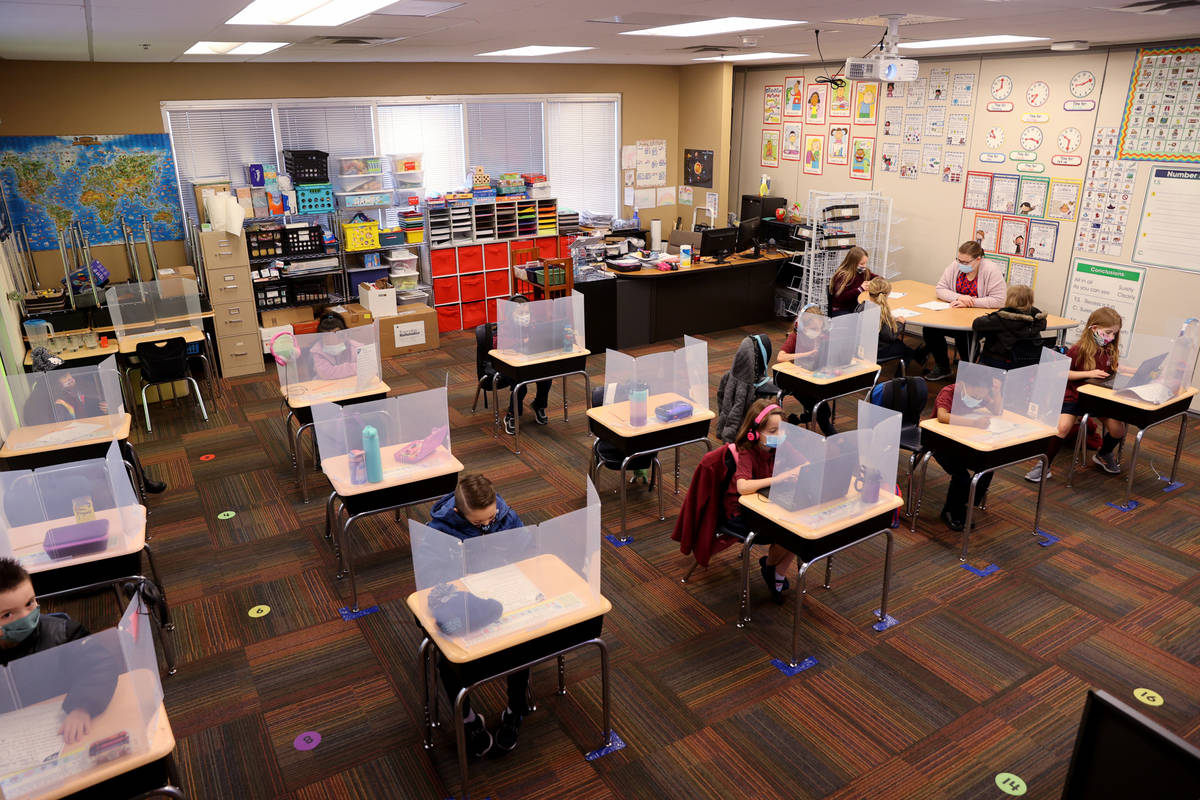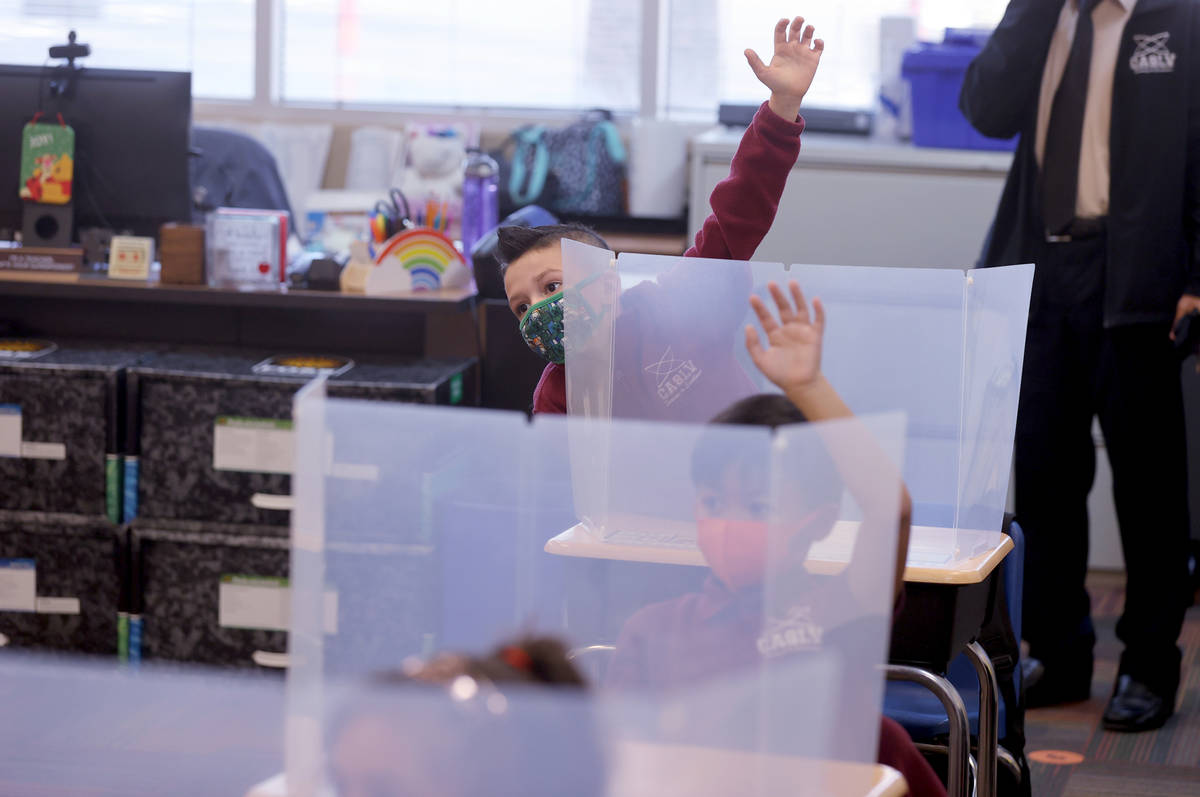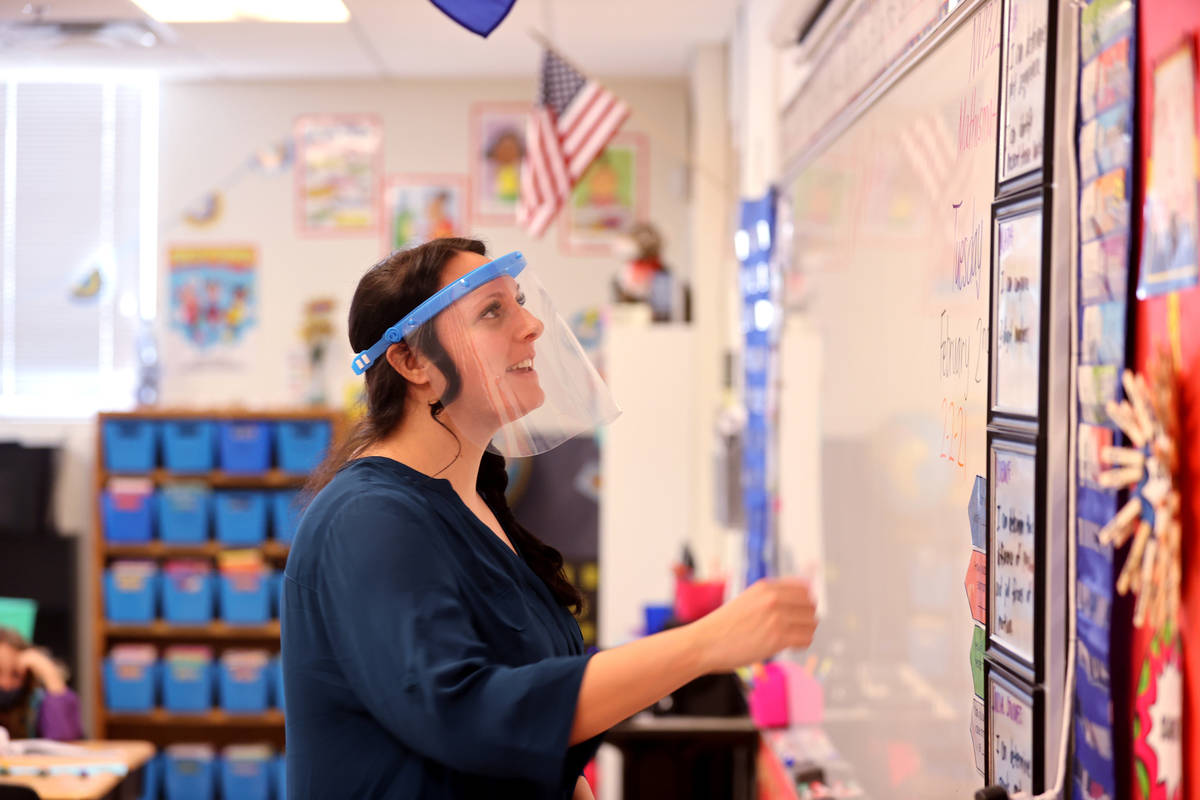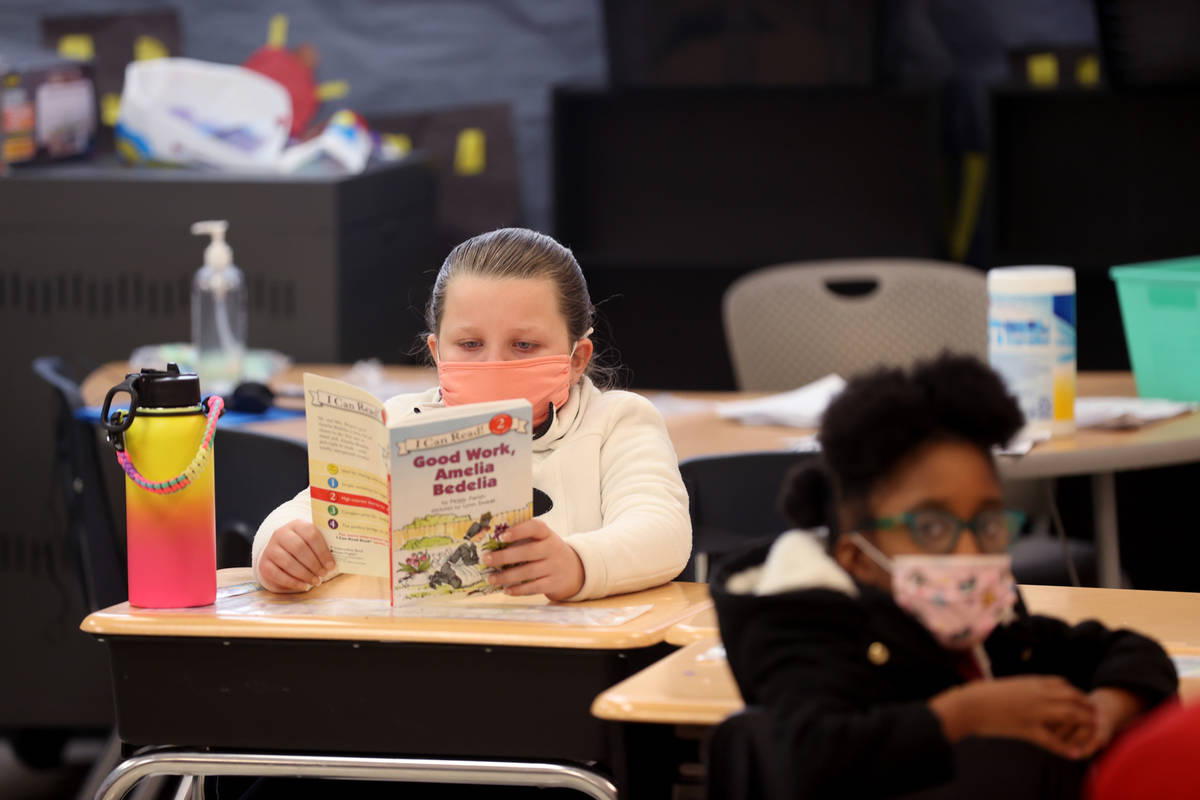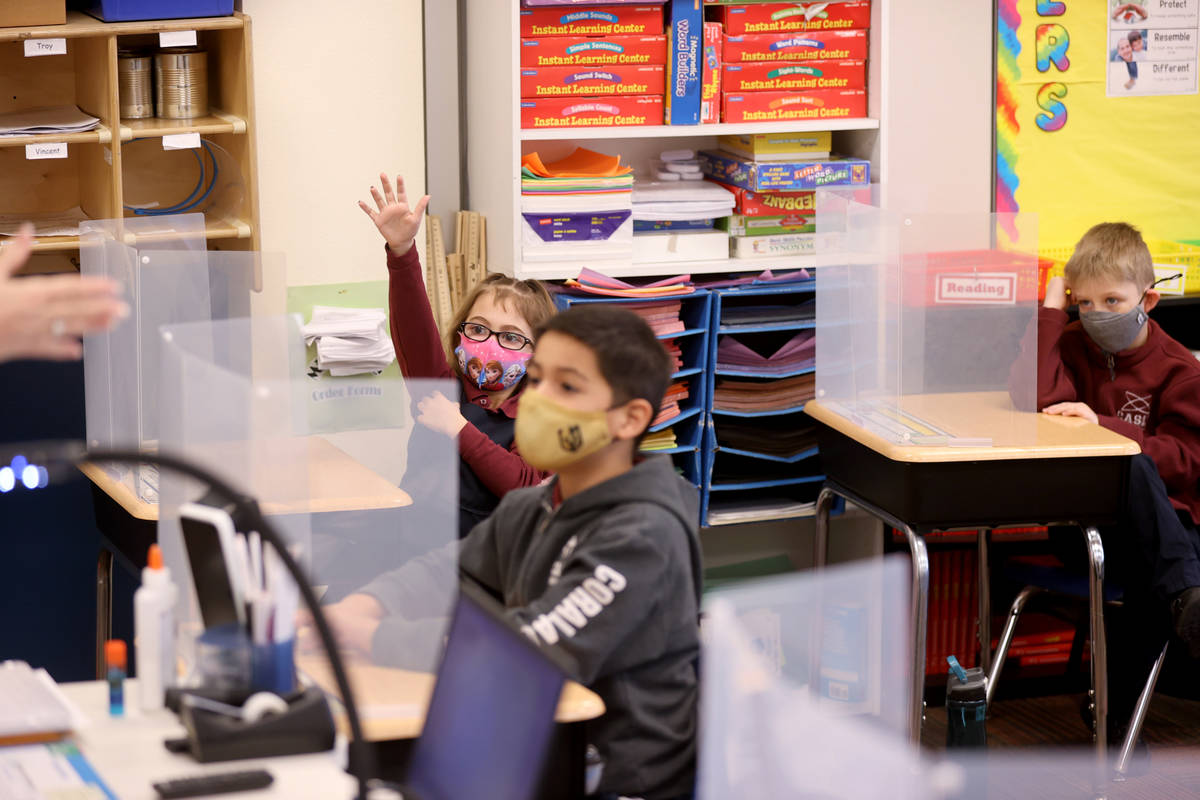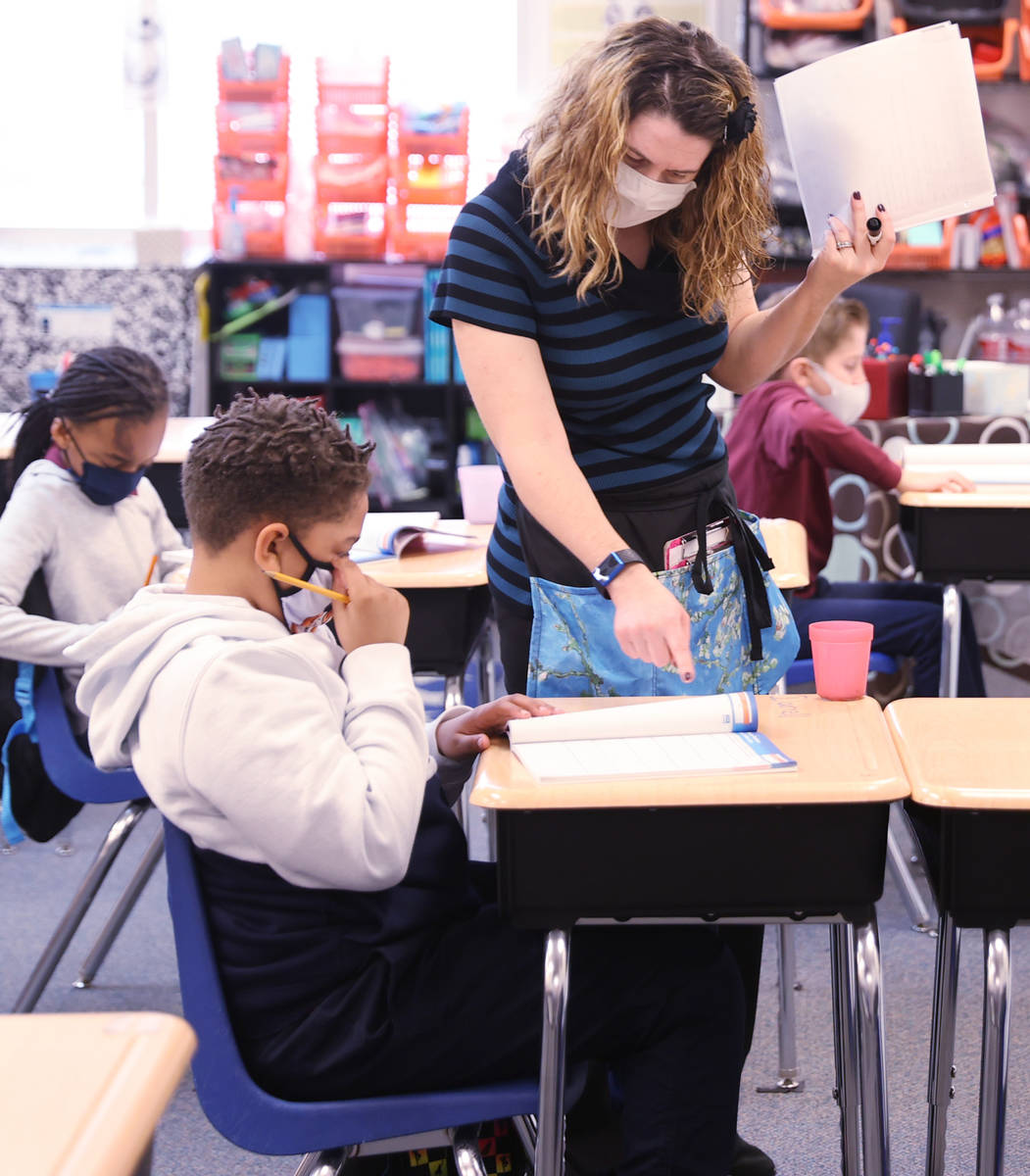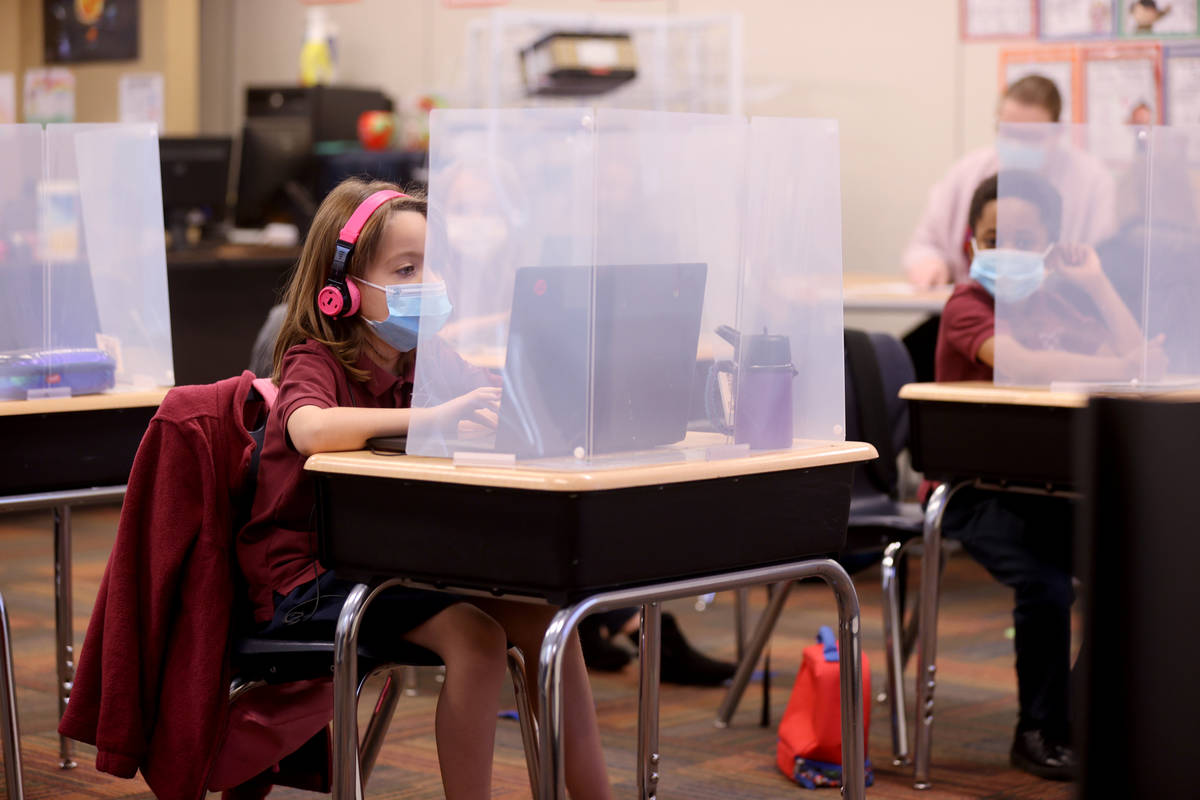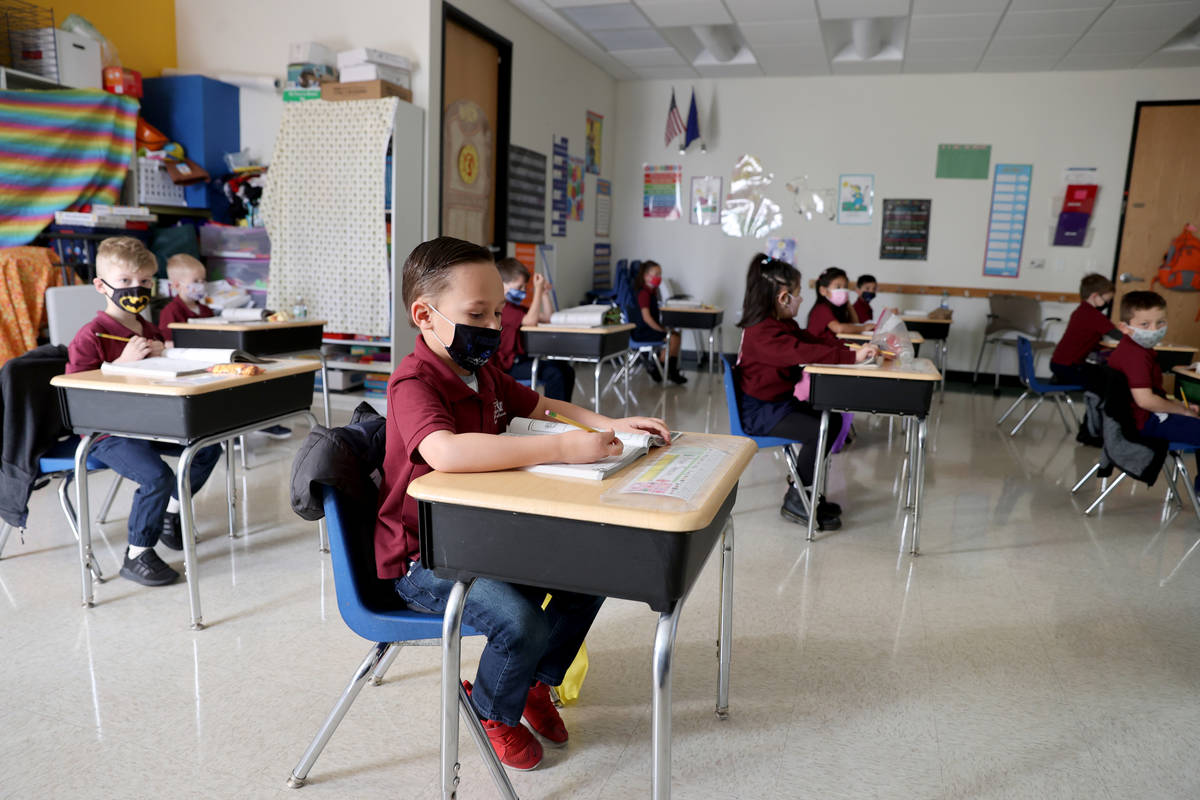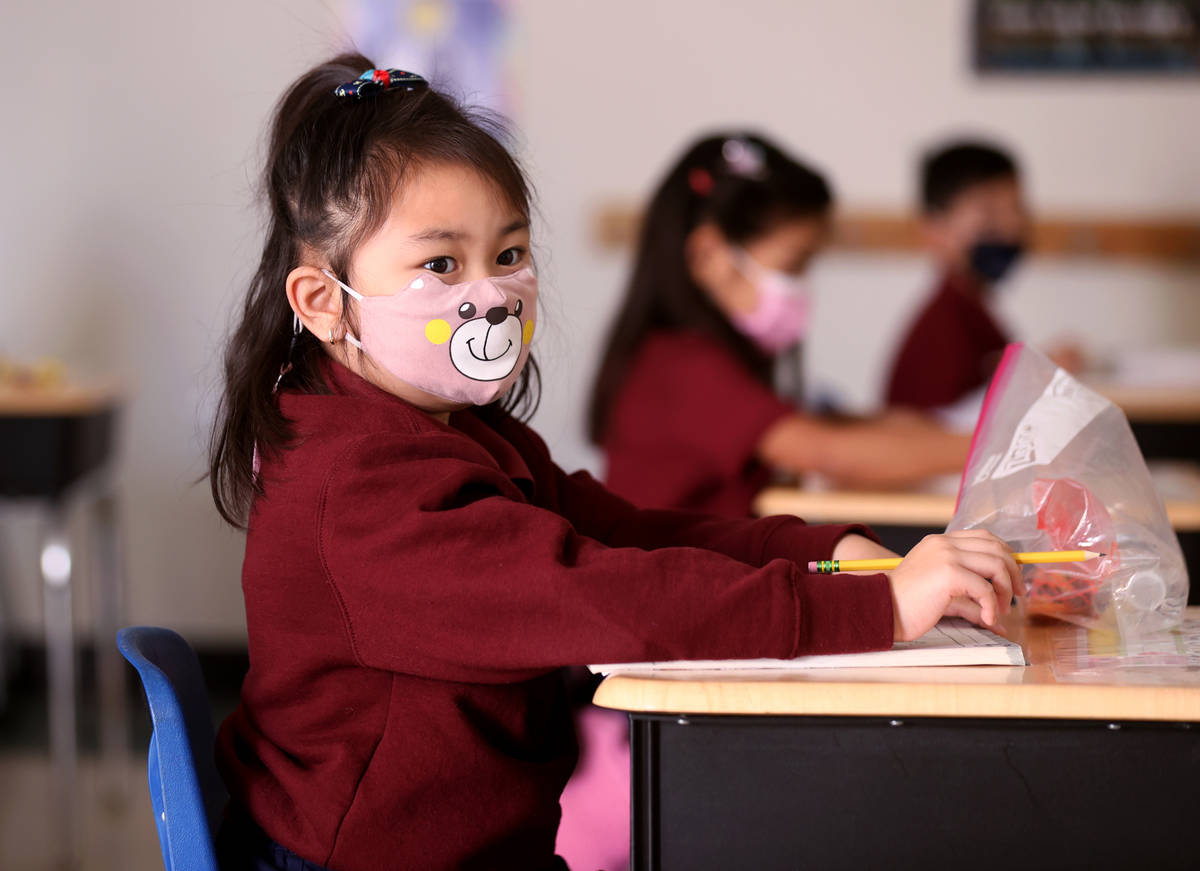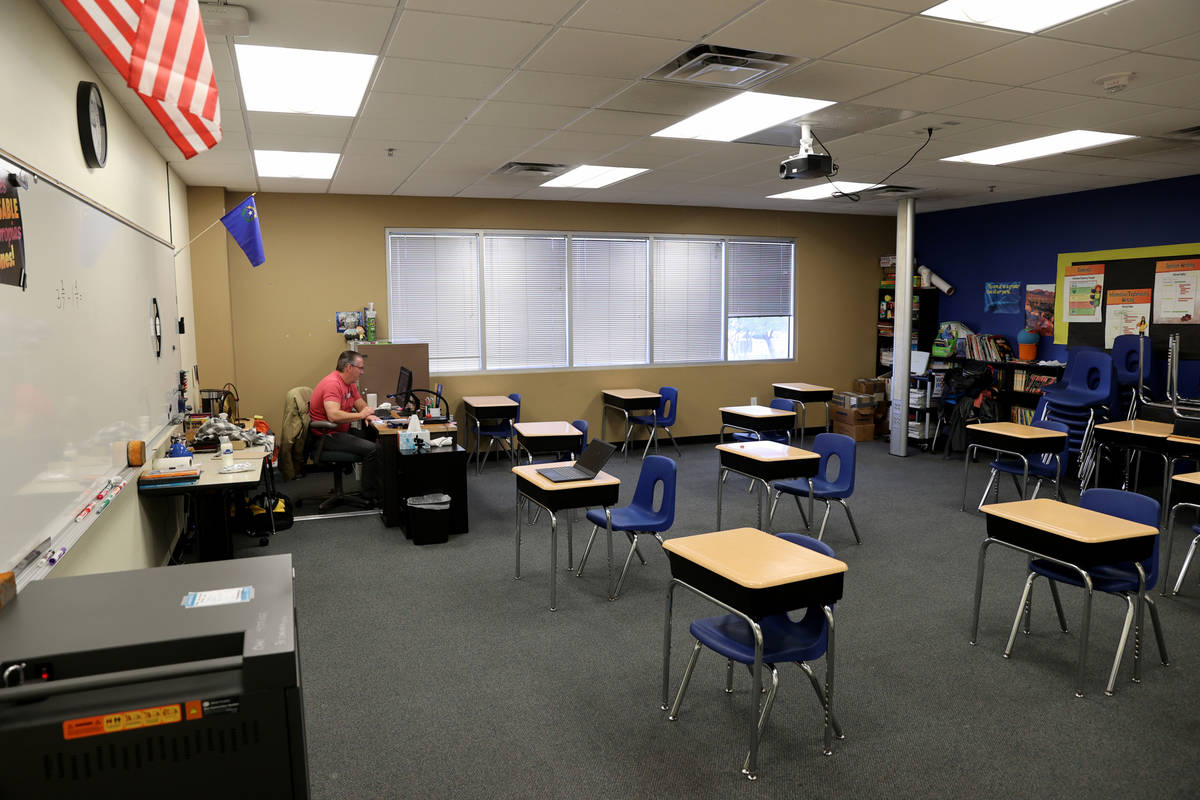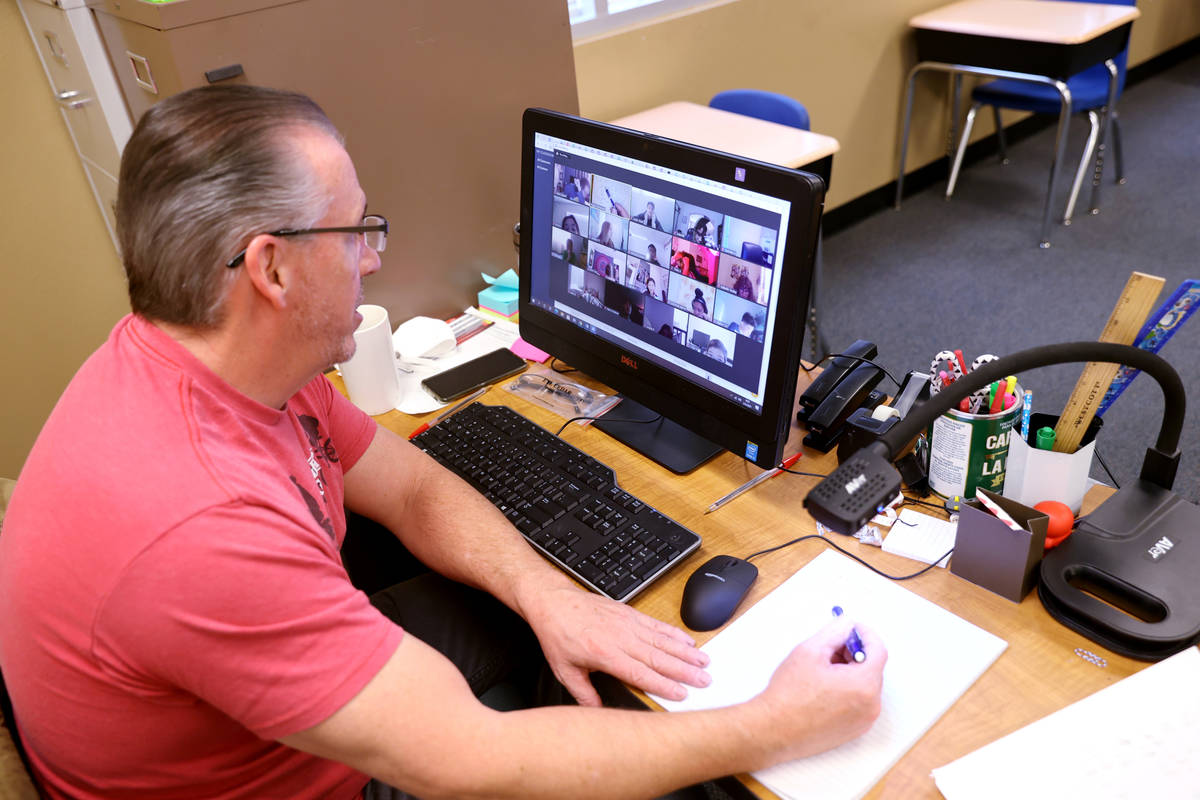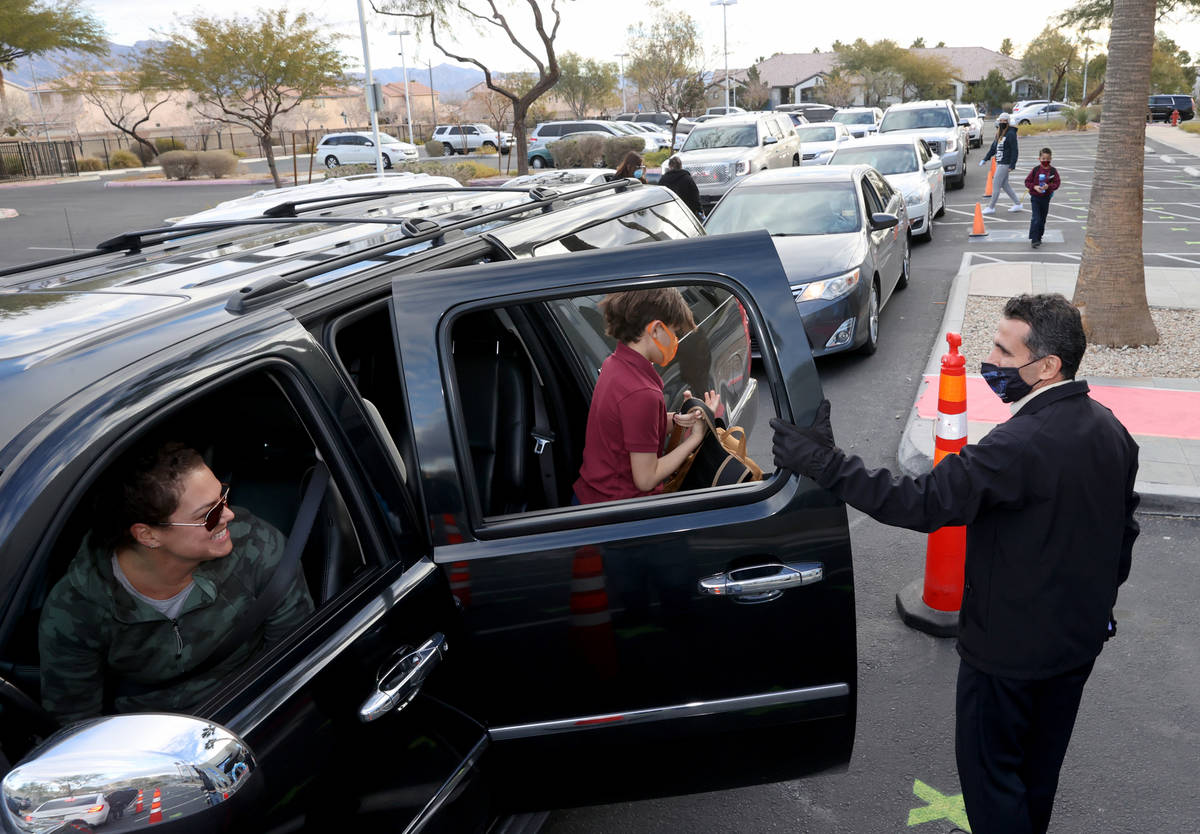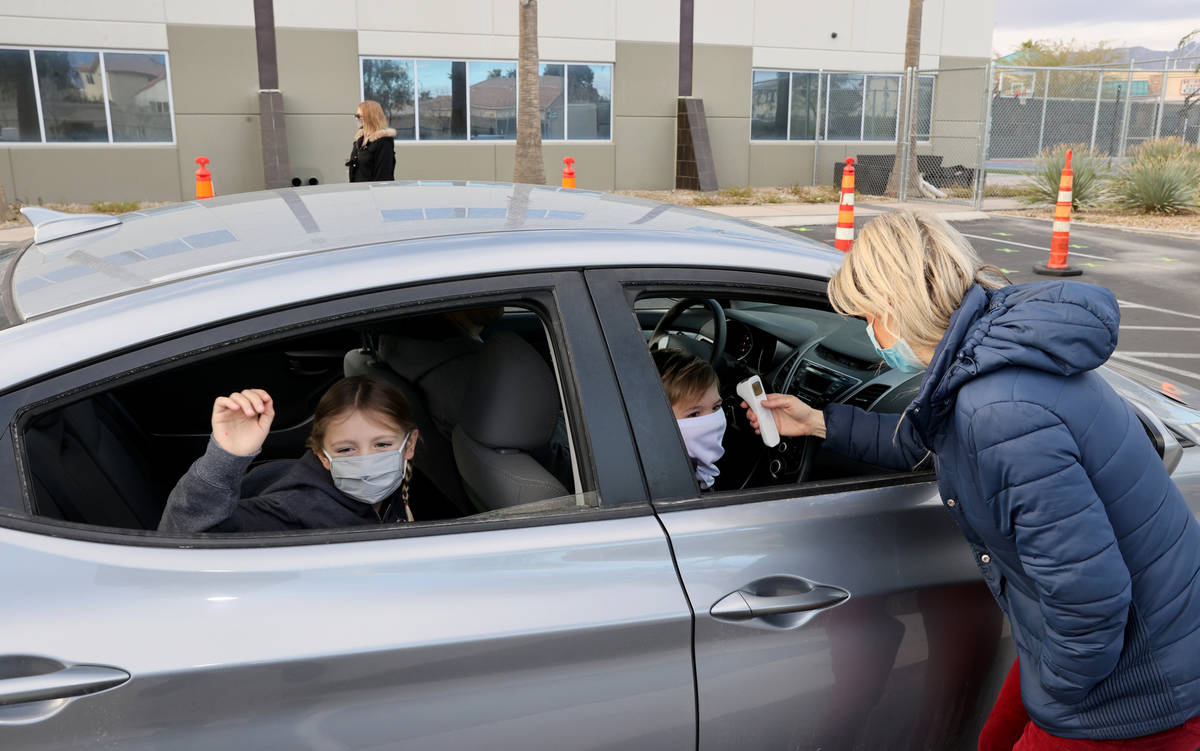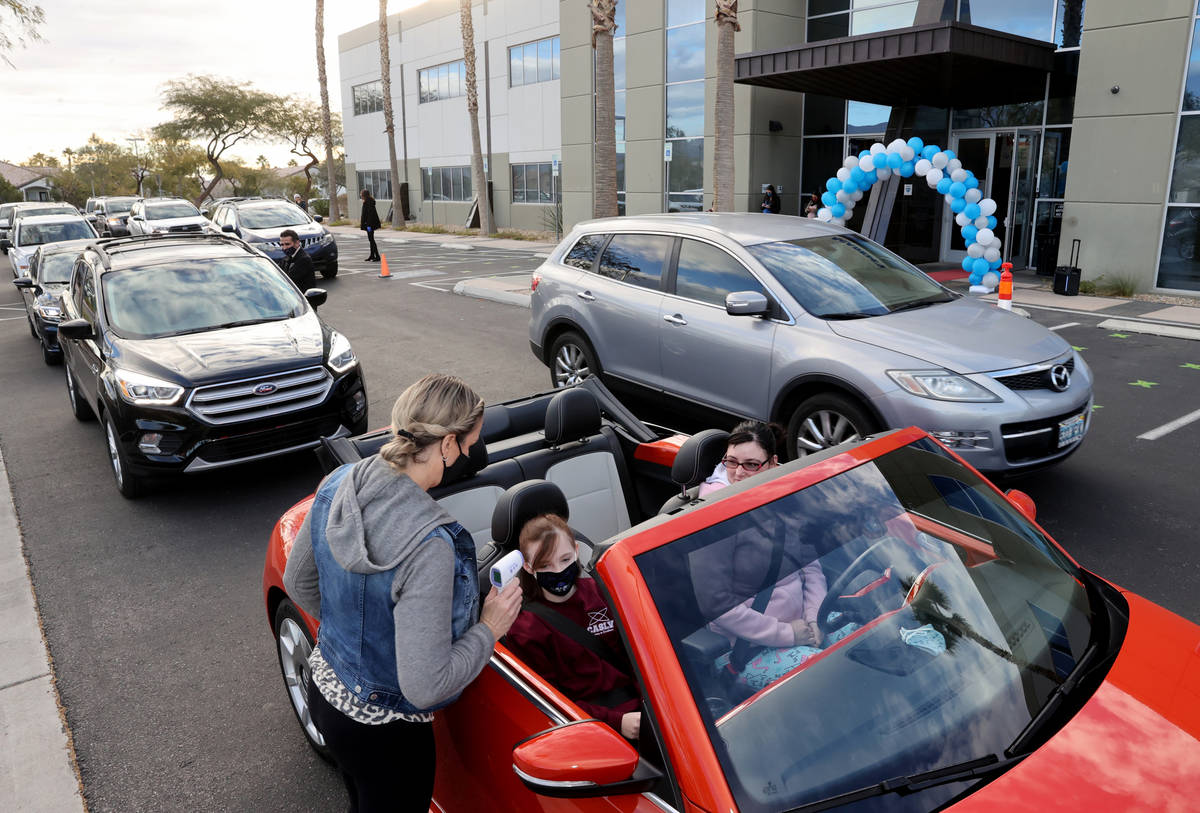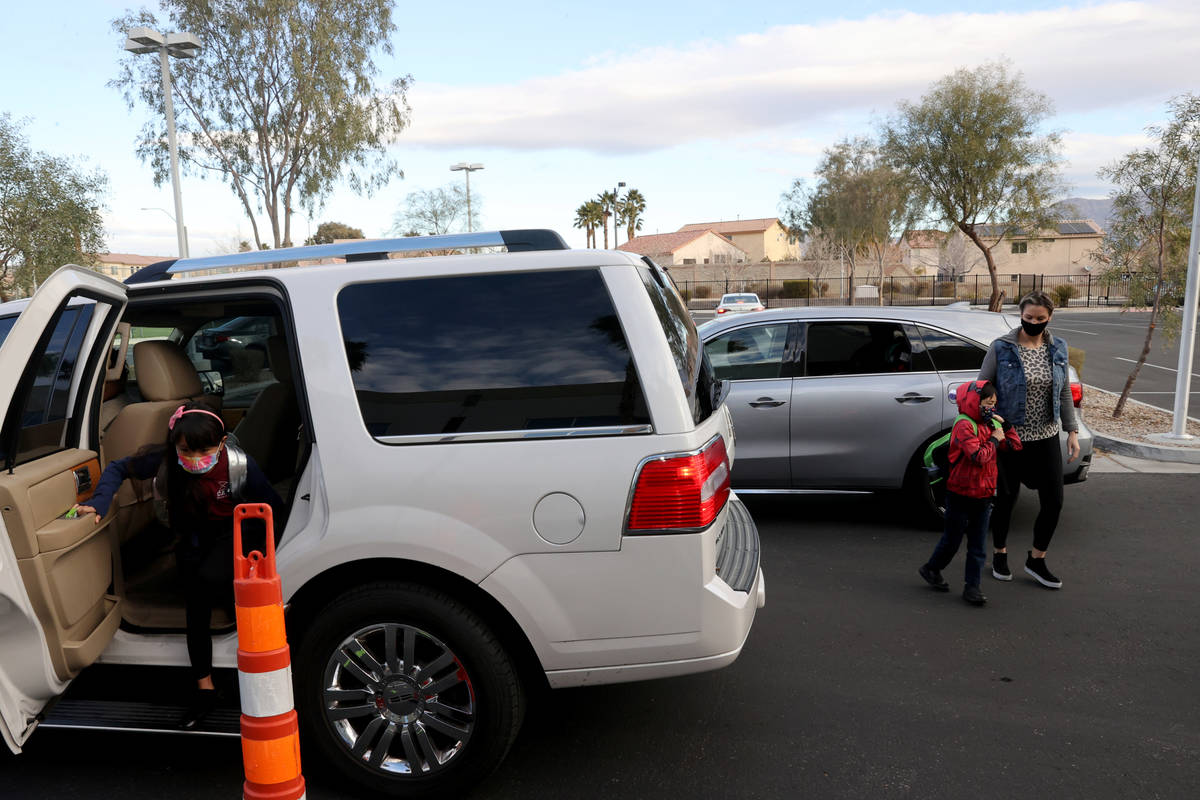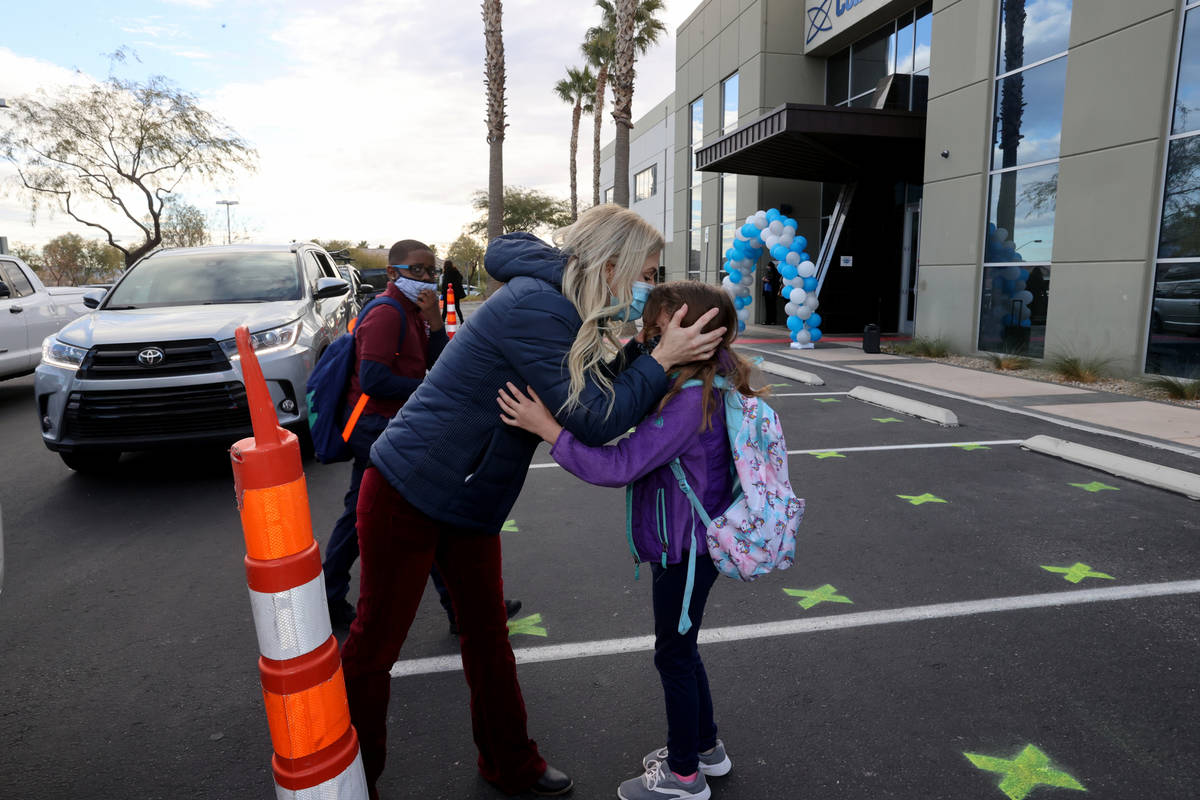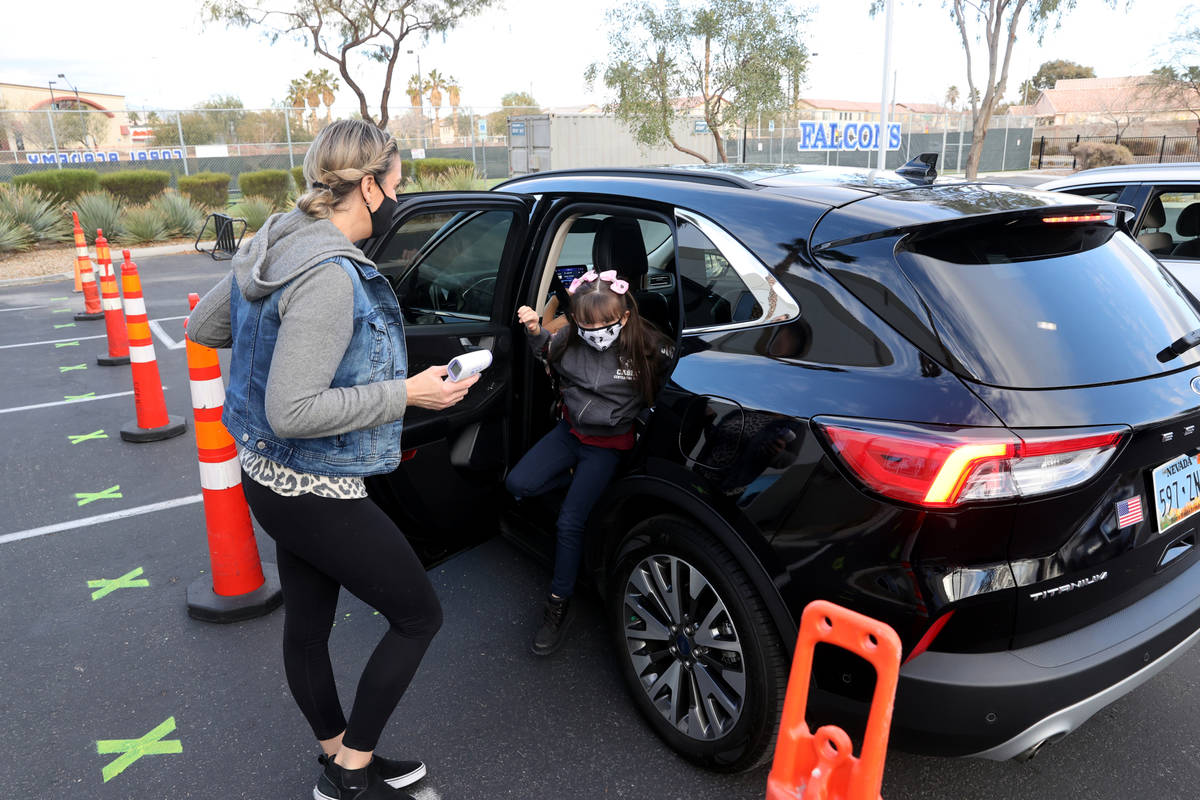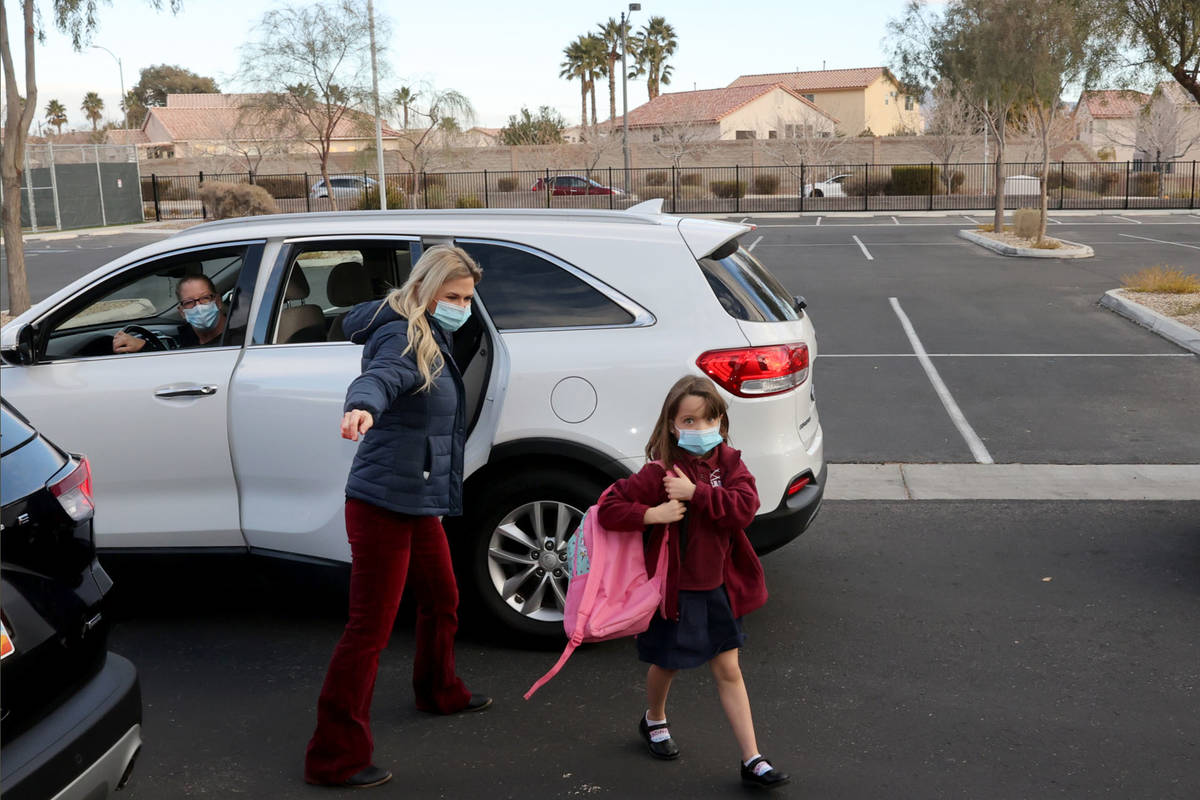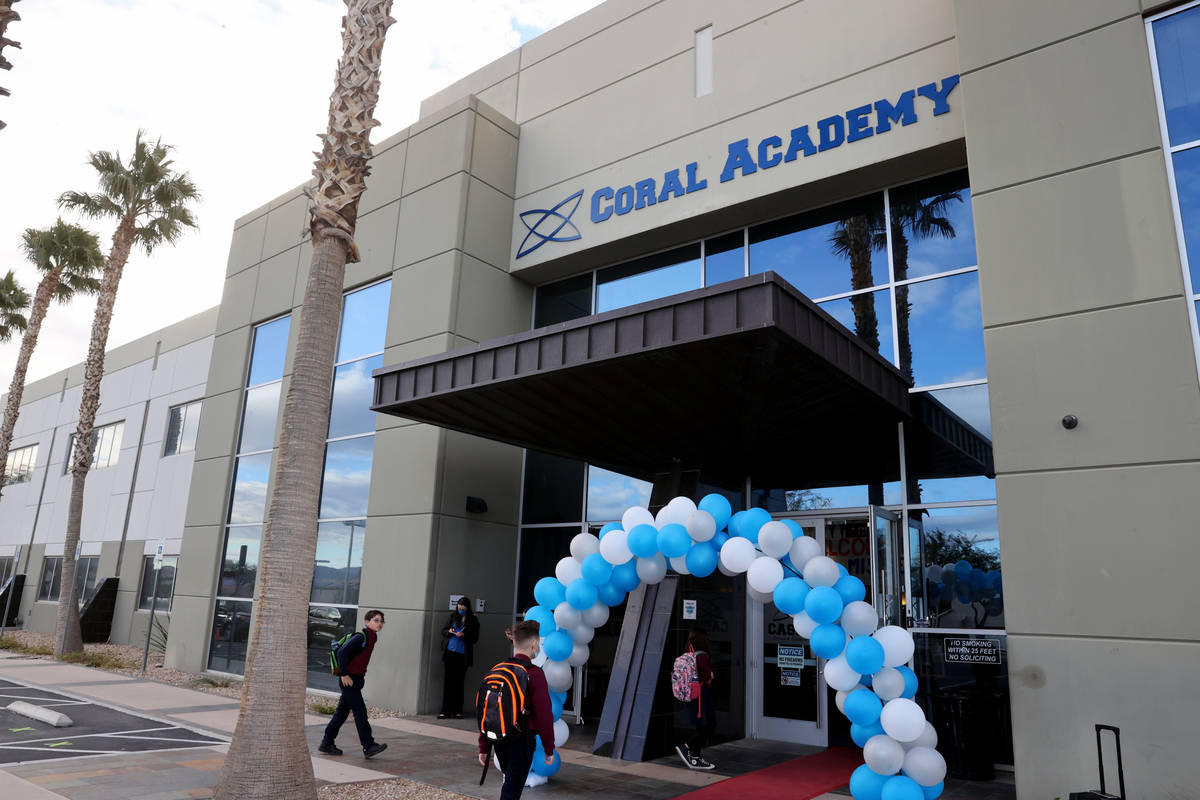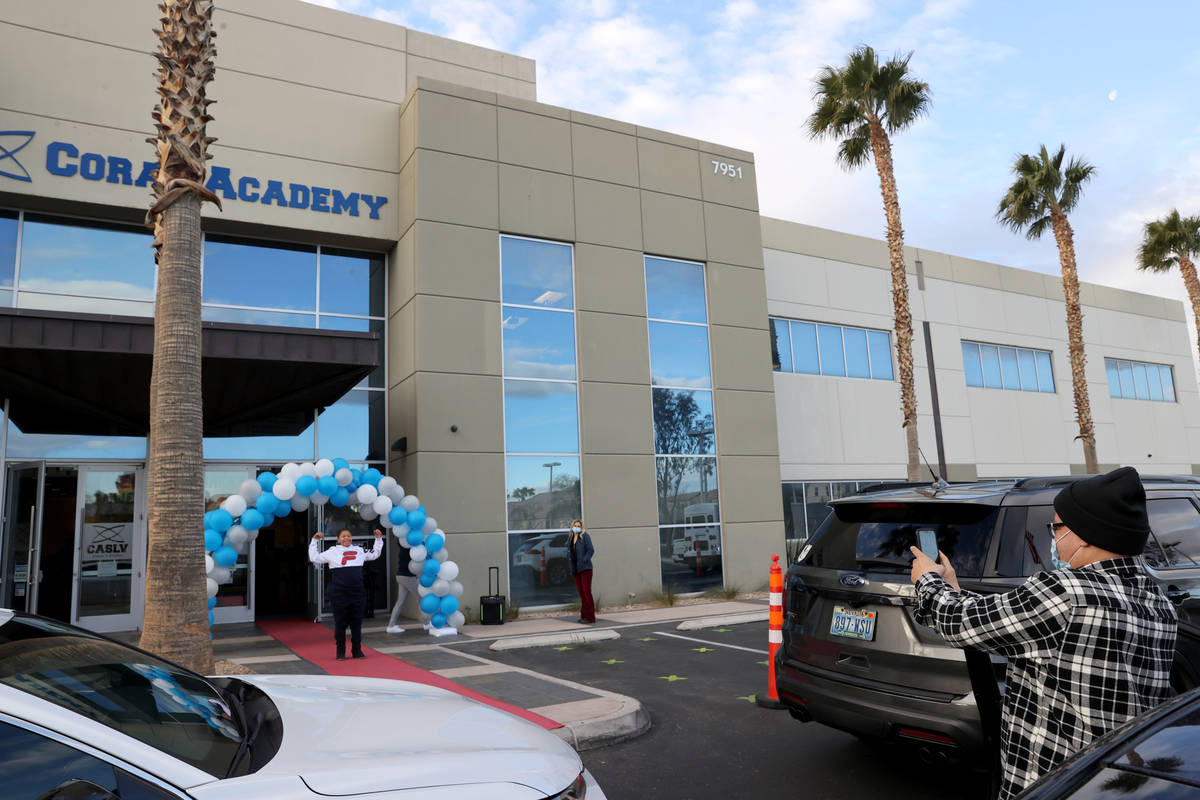What classroom teaching looks like in Las Vegas in the age of COVID
Inside Tammy Schuster’s kindergarten classroom at the Coral Academy of Science Las Vegas, each child sat at a desk at least 3 feet away from their nearest classmates as they pulled out their workbooks.
“Who can remember what the ‘L’ sound makes?” Schuster asked her students at the public charter school’s Centennial Hills campus. “Elllll…,” the children responded, their voices muffled by their face masks.
Nearby, first-graders in teacher Ariel Miller’s classroom took in a lesson while seated at desks framed by clear tri-fold partitions that served as protective barriers.
Coral Academy — one of largest public charter schools in the Las Vegas Valley with six campuses, about 3,750 students and 198 teachers — allowed the Review-Journal to visit several classrooms at the school on Tuesday, providing a rare glimpse at what in-person schooling looks like in the midst of the COVID-19 pandemic.
Each Coral Academy campus is returning students to the classroom at its own pace, but the Centennial Hills campus in northwest Las Vegas has been conducting some in-person instruction since mid-October, when it welcomed back kindergarten through second-grade students. On Monday, third- through fifth-graders returned to classrooms for the first time since mid-March, unless they had come for fall picture day or to pick up school breakfasts and lunches.
Sixth through eighth grades are slated to return Feb. 22.
Half-day sessions at school
The school is using a hybrid model where students attend half-day sessions — either morning or afternoon — five days a week. Students work on classwork from home the other half of the day. Parents also have the option of 100 percent distance education for their kids.
“The parents are really very appreciative,” Principal Serdar Yuksekkaya said of the recent expansion, adding that distance learning is a struggle and in-person classes allow children to socialize with teachers and friends.
Out of about 650 students at the Centennial Hills campus, 225 are attending in-person classes this week.
The school surveyed parents and 51 percent wanted their kindergarten through eighth grade children to return to the classroom, while the rest opted to continue with distance education.
Las Vegas-area charter schools started the school year with full distance learning, but some brought back small numbers of students to campus when the second quarter started in October. Many switched back to distance learning in November, but later ramped up in-person instruction again after winter break.
The Nevada State Public Charter School Authority allows its schools in counties with an elevated level of COVID-19 transmission — including Clark County — to have up to 40 percent of their students on campus at any given time.
Many local private schools have operated with full-time in-person classes since the school year began in August.
The Clark County School District has operated with full distance education for nearly a year, but it plans to give families the option of sending their preschool through third-grade students back for in-person instruction starting March 1.
Each half-day session at Coral Academy’s Centennial Hills campus lasts about three hours, and focuses on core subject areas such as English and math. Students stay in their classroom. Special classes such as physical education and art are held virtually.
There’s no lunchtime or recess, but students have a 10-minute “brain break” and snack time when they can go outside.
It’s just a short break to maximize class time, Yuksekkaya said. “We don’t want to interrupt their education more.”
Break times are staggered to limit the number of students who are outside at any given time. Playground equipment is off limits and is blocked off with yellow tape.
With a couple of exceptions, elementary school teachers spend half their day providing in-person instruction to students on campus and half the day providing lessons via video for those participating in distance learning.
While the debate continues over the risk of spreading the coronavirus posed by reopening schools, Coral Academy has reported 67 COVID-19 cases among employees and students, including those attending remotely, during the school year.
Back in classrooms
The school’s executive director and CEO, Ercan Aydogdu, told the Review-Journal in a statement that in-person instruction offers benefits over distance learning.
“It is imperative for the health and the welfare of our students to get back to a sense of normalcy for both mental health and academia,” he said. “We have kept the dialogue open between administration, staff and parents to provide a safe system that works best for all.”
The school uses Zoom for live video lessons and Canvas, the same online learning management system the Clark County School District uses.
On Tuesday, fourth-grade teacher Michalle Santo Pietro was leading her students through an in-person lesson. But directly across the hallway, fifth-grade teacher Roger Dunnavant sat at his desk in an empty classroom giving a lesson via Zoom. He was to switch to in-person instruction in the afternoon.
On Tuesday, a long line with dozens of cars formed in a parking lot at Coral Academy’s Centennial Hills campus when drop-off time began at 7:45 a.m.
The school allows only drop-offs due to the pandemic and parents aren’t getting out of their cars. Students also aren’t walking or riding bicycles to school.
About six school employees, some of whom were wearing disposable gloves, went from car-to-car taking each student’s temperature. Most students were already wearing a face mask at that point, but some parents weren’t when they rolled down their car window to talk with employees.
There were two lines of cars and employees directed traffic. “Let’s go,” Yuksekkaya said as he motioned for one line of cars to inch up closer toward the front entrance.
In about 10 minutes, the line was gone. “We’ve got four minutes to spare,” one employee told Yuksekkaya.
Students were welcomed back to campus Monday and Tuesday with a red carpet entrance into the school building, passing under an arch made of blue and white balloons as upbeat party-like music blasted from a portable speaker.
Inside the cafeteria, tables were folded up and pushed against walls. On Wednesdays, parents will be allowed into the building at designated time intervals to pick up a week’s worth of breakfasts and lunches for their student.
Hand sanitizer dispensers are set up throughout the building. Water fountains are turned off. Colorful dots and tape on hallway floors indicate which direction students should walk and how far apart they need to be from each other.
“The students are really smart,” Yuksekkaya said. “They haven’t had any issues.”
Contact Julie Wootton-Greener at jgreener@reviewjournal.com or 702-387-2921. Follow @julieswootton on Twitter.




